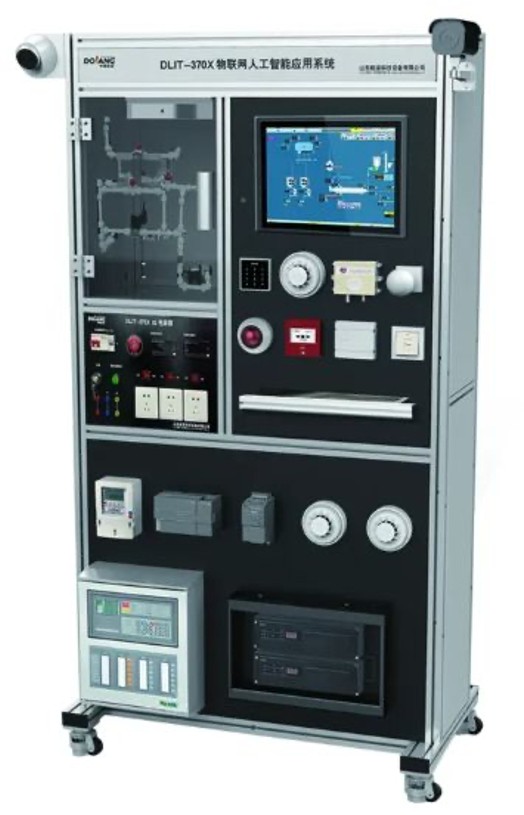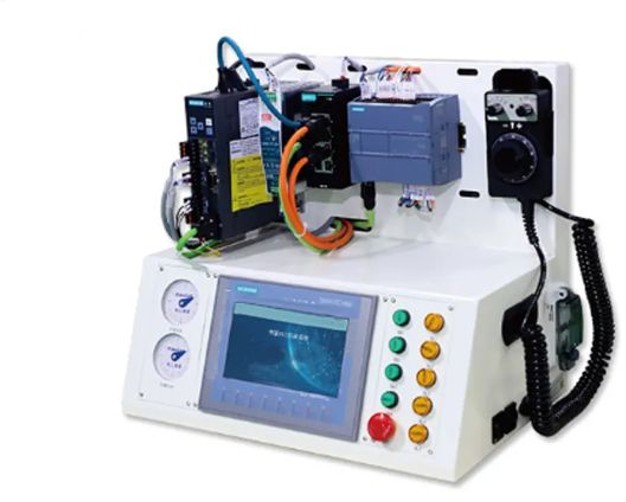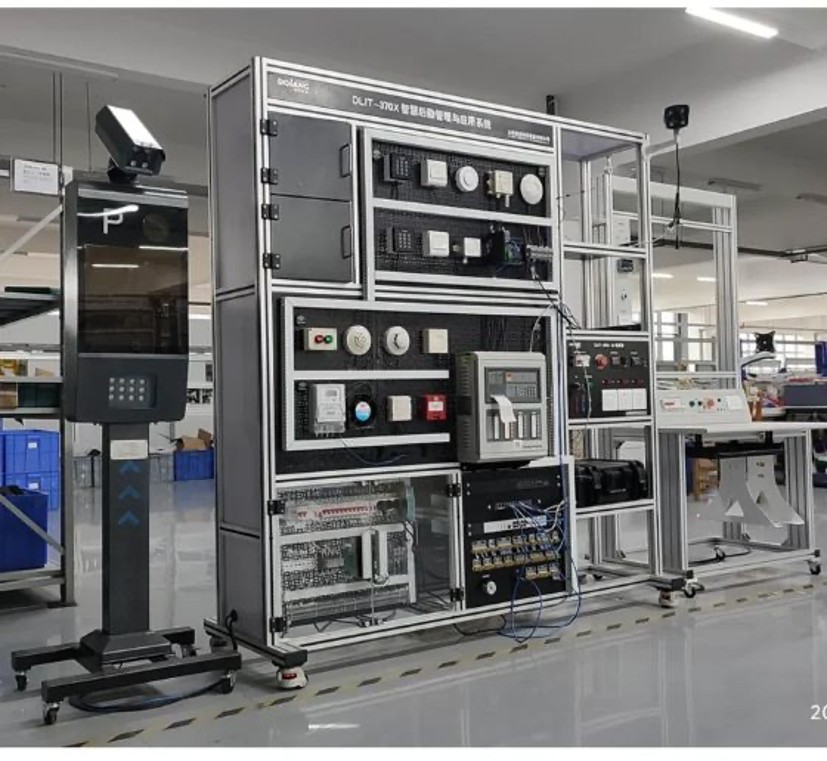The Internet of Things refers to the network of interconnected devices, objects, and systems that have the ability to collect and exchange data. This technology has gained immense importance in recent years as it enables us to create smart homes, smart cities, and even smart industries. With IoT, we can connect and control various devices and systems remotely, making our lives more convenient, efficient, and secure.
1. Introduction
Now, let’s talk about the significance of IoT training equipment. As IoT continues to revolutionize various industries, it becomes crucial for individuals and professionals to gain the necessary skills and knowledge to leverage this technology effectively. IoT training equipment plays a vital role in providing hands-on experience and practical understanding of the principles and protocols involved in IoT systems.
By using IoT training equipment, aspiring IoT professionals can simulate real-world scenarios and learn how to design, implement, and manage IoT solutions. These training tools offer a safe and controlled environment to experiment, troubleshoot, and develop innovative IoT applications. With the help of IoT training equipment, individuals can grasp the complexities of IoT technologies and gain the confidence to apply their skills in the real world.
Whether it’s learning about sensor technologies, data analytics, or cloud computing, IoT training equipment provides a comprehensive platform to explore the vast possibilities of this technology. By actively engaging with these tools, individuals can master the intricacies of IoT, hone their problem-solving abilities, and become valuable contributors to the digital transformation happening around us.
2. The Impact of IoT on Industries
A. IoT has indeed disrupted various industries, including healthcare, manufacturing, and transportation.
In healthcare, IoT devices such as wearable fitness trackers and smart health monitors have revolutionized patient care by enabling remote monitoring and timely intervention. In CNC manufacturing, IoT has brought about a new era of efficiency with the adoption of smart factories, where interconnected devices optimize production processes, reduce downtime, and enhance product quality. In the transportation sector, IoT has facilitated the development of smart and connected vehicles, enabling real-time tracking, predictive maintenance, and improved safety.
B. There are numerous examples of IoT applications and their benefits across industries.
In healthcare, IoT-enabled telemedicine platforms allow patients to consult with doctors remotely, reducing the need for physical visits and improving accessibility to healthcare services. In manufacturing, IoT sensors and analytics help identify patterns and potential issues in production lines, optimizing workflows and reducing waste. In transportation, IoT-powered smart traffic management systems can alleviate congestion and enhance traffic flow, resulting in reduced travel times and fuel consumption.
C. The rapid growth of IoT has created a demand for professionals with IoT skills to drive innovation in these industries.
Individuals who possess expertise in IoT technologies, data analytics, cybersecurity, and system integration are highly sought after. These professionals play a crucial role in designing, implementing, and maintaining IoT solutions, ensuring the seamless integration of smart devices and maximizing the benefits they can bring to various sectors.

3. The Role of IOT Training Equipment
A. IoT training equipment plays a crucial role in preparing individuals to work with IoT technologies.
It provides a practical and hands-on learning experience, allowing learners to understand the intricacies of IoT systems and develop the necessary skills to implement and manage them. The significance of IoT training equipment lies in its ability to bridge the gap between theoretical knowledge and real-world application.
B. Advanced IoT training equipment comes equipped with various features and capabilities.
It typically includes a range of sensors, actuators, microcontrollers, and communication modules that simulate real-world IoT devices and networks. These training kits often have user-friendly interfaces and software tools that enable learners to design, configure, and test IoT solutions seamlessly. Additionally, advanced IoT training equipment may support cloud connectivity, enabling learners to explore cloud-based analytics and data management.
C. One of the key advantages of using IoT training equipment is the practicality it offers.
Learners can gain hands-on experience by working with actual hardware components and configuring IoT systems in a controlled environment. This practical approach allows them to understand the challenges and complexities that arise when integrating different devices, networks, and data sources. By troubleshooting issues and experimenting with IoT configurations, individuals can build confidence and proficiency in implementing IoT solutions.
D. IoT training equipment helps individuals develop skills in various areas such as hardware, networking, and data analysis.
They can learn how to connect and program IoT devices, understand protocols and communication standards, and work with sensors and actuators. Furthermore, IoT training equipment often includes data analytics tools, enabling learners to collect, process, and analyze data generated by IoT devices. This allows them to gain insights from the collected data and make informed decisions based on the analysis.
4. Future Trends and Opportunities
A. IoT technology is continuously evolving, and several emerging trends are shaping its future.
One such trend is edge computing, where data processing and analysis are performed closer to the source, reducing latency and enhancing real-time decision-making. Another prominent trend is the convergence of IoT with artificial intelligence (AI), enabling intelligent automation, predictive analytics, and personalized user experiences. Moreover, the integration of blockchain technology with IoT offers enhanced security, transparency, and trust in data exchange and transactions.
B. The rapid growth of IoT technology presents a wide range of career opportunities.
Professionals with IoT skills can explore roles as IoT solution architects, IoT system integrators, IoT data analysts, and IoT security specialists. Additionally, the demand for professionals skilled in cloud computing, AI, and data analytics, coupled with IoT expertise, is on the rise. Industries such as healthcare, agriculture, smart cities, and energy management offer vast possibilities for IoT professionals to make a significant impact.
C. Embracing IoT training equipment can be an excellent stepping stone to a promising career in IoT.
By gaining hands-on experience with IoT devices, networking, and data analysis, individuals can develop the practical skills needed to thrive in this field. IoT training equipment provides a platform to explore and experiment with the latest IoT technologies, preparing individuals to contribute to the future advancements and innovations in this rapidly growing industry.

5. Conclusion
IoT training equipment plays a crucial role in shaping industries and careers. It provides a practical and hands-on learning experience, bridging the gap between theoretical knowledge and real-world application.
By using IoT training equipment, individuals can develop skills in hardware, networking, and data analysis, equipping them to drive innovation and contribute to industries such as healthcare, manufacturing, and transportation. The practicality and hands-on experience gained through IoT training equipment prepare individuals for the challenges and complexities of implementing and managing IoT solutions.
So, seize the moment and embark on your IoT journey. Explore the possibilities, invest in IoT training equipment, and equip yourself with the skills to make a meaningful impact in industries and shape the future of technology. The world of dolangedu IoT training equipment awaits you!

